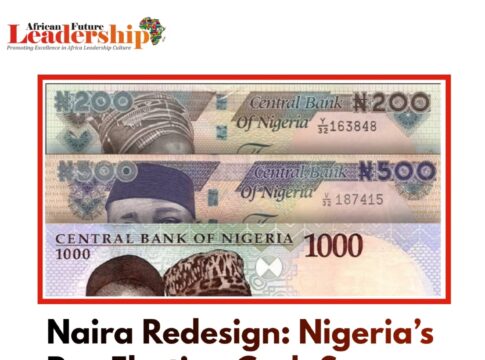For the first time on record, cash in circulation in Africa’s largest economy dropped ahead of elections following the central bank’s decision to redesign high-value naira notes.
The amount of currency circulating in the economy declined 4% to 3.16 trillion naira ($6.9 billion) in November from the previous month, according to Central Bank of Nigeria data.
That breaks a fashion not unusual with all six elections Nigeria has held because democracy returned in 1999. Cash in movement jumped in advance of each of these polls due to accelerated campaign spending within the West African nation’s cash-dominant financial system. Nigeria holds presidential elections on Feb. 25 and campaigns kicked off in September.
READ MORE: World Economic Forum: Godongwana on the charm offensive
This means “some of the excess cash is actually going into the banking system,” Abdulazeez Kuranga, macroeconomic strategist at Lagos-based Cordros Capital Ltd., said by phone. The central bank limits on cash are “encouraging electronic transactions,” he said.
The central bank in October announced plans to redesign highest-value banknotes for freshly-issued bills. It gave citizens until the end of January to change their old notes for new ones at the banks, with the aim to bring an estimated 2.7 trillion naira that circulates in informal channels into the regular banking system.




